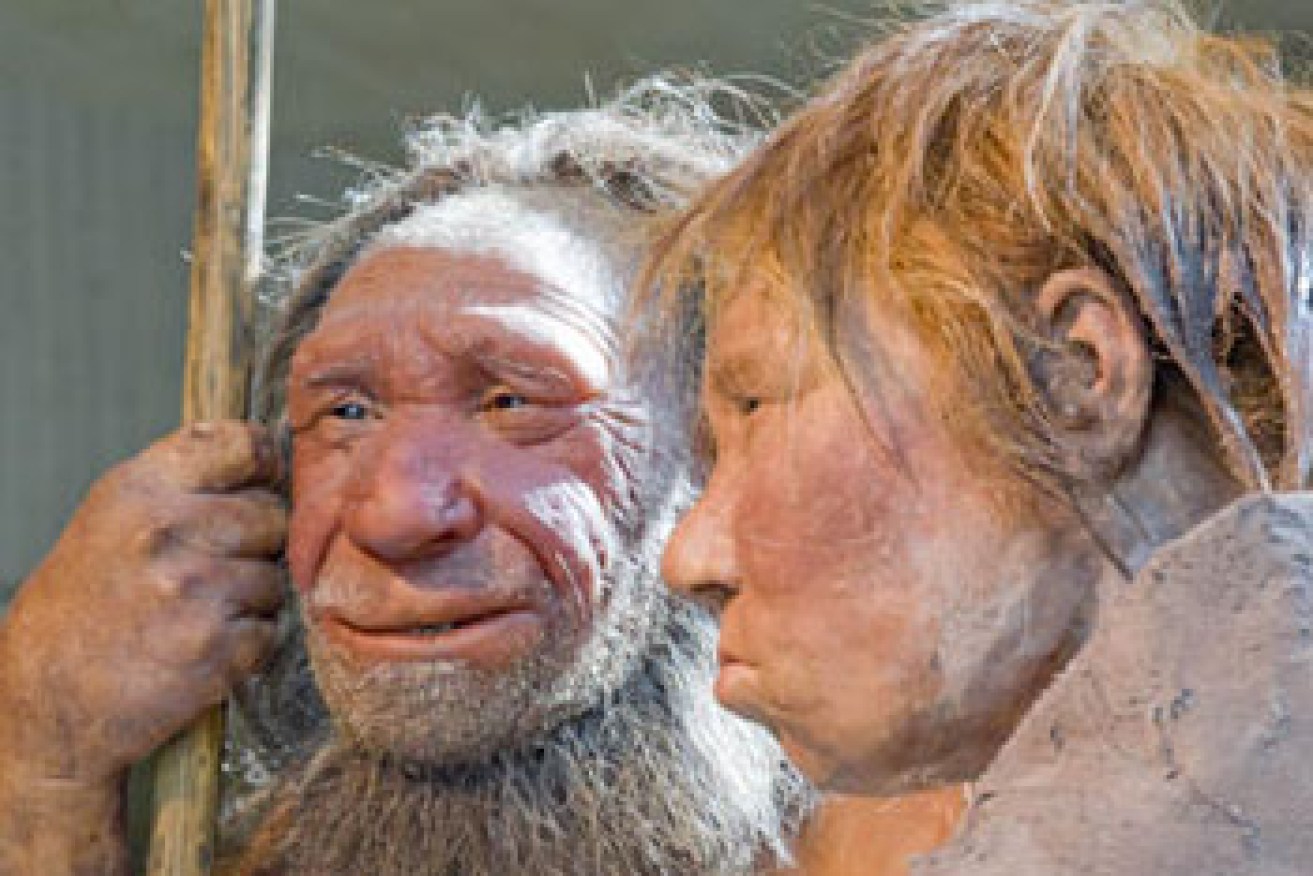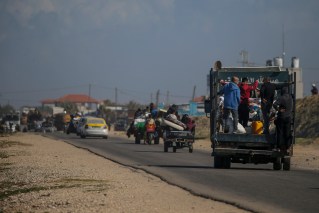The new findings that could rewrite human history

AAP
Remains of a Neanderthal woman who lived around 100,000 years ago in the Altai Mountains of Siberia reveal that human and Neanderthals mated much earlier than previously thought.
One or more of her relatives were actually humans, a new study shows.
It has been known that Neanderthals contributed DNA to modern humans, so people today of European and Asian descent retain Neanderthal DNA in their genomes, but the Neanderthal woman offers the first evidence that gene flow from interbreeding went from modern humans into Neanderthals as well.
• Scientists ‘discover’ a new planet called ‘Planet Nine’
• Ancient species may have lived among humans
• Micropigs! Scientists create itty bitty little pigs
The study, published in the journal Nature, “is also the first to provide genetic evidence of modern humans outside Africa as early as 100,000 years ago,” said the study’s co-author Dr Sergi Castellano, of the Max Planck Institute for Evolutionary Anthropology.
Given the now closely intertwined histories of Neanderthals and Homo sapiens, Dr Castellano added that “it is better to refer to Neanderthals and modern humans as two different human groups, one archaic and one modern, and not different species.”
Earlier research determined that Neanderthals and modern humans met and mated outside of Africa sometime between 47,000-65,000 years ago.
The Siberian woman shows that such interbreeding could have happened as early as 120,000 years ago, since it is now believed modern humans and Neanderthals were both then present in the region around the Persian Gulf and in the area where the following countries are now located: Cyprus, Egypt, Israel, Lebanon, Syria and Turkey.
Waves of human migration

Reconstructed sculptures show what a Neanderthal man and woman may have looked like. Photo: AAP
Dr Castellano, Dr Martin Kuhlwilm and their colleagues analysed the Siberian woman’s DNA and identified portions of her genome that match sequences taken from people who are now living in Africa.
The researchers also analysed the remains of a Denisovan — another type of ancient human found in the same cave — and the remains of two Neanderthals that were found in European caves (one from Croatia, and the other from Spain). No modern human DNA was detected in those three other individuals.
The scientists think that a population of Neanderthals likely migrated from Europe through the Near East, where mating with modern humans occurred.
They then continued to travel up into the Altai Mountains, where the climate was much milder 125,000 years ago than it is now.
Dr Castellano and his team further believe that the modern humans who were in the Near East at this early time eventually died out and did not contribute to the present day Homo sapiensgenome.
Nevertheless, Dr Castellano said, “Some Asians and Oceanians (living today) have more Neanderthal DNA because a second pulse of admixture might have happened with Neanderthals”.
The evidence throws a spanner in the widely held view that modern humans first left Africa about 60,000 years ago. Instead, it seems that one or more groups of modern humans were leaving Africa tens of thousands of years earlier, and apparently at least some were mating with Neanderthals along the way.
Professor Montgomery Slatkin of the Department of Integrative Biology at the University of California at Berkeley said the results (of the new study) were “important because they show how complex the relationships between the ancestors of modern humans and Neanderthals were”.
“It will be interesting to find out whether the early interbreeding between Neanderthals and humans affects only the Neanderthals found in Asia, or all Neanderthals,” he said.
– ABC








